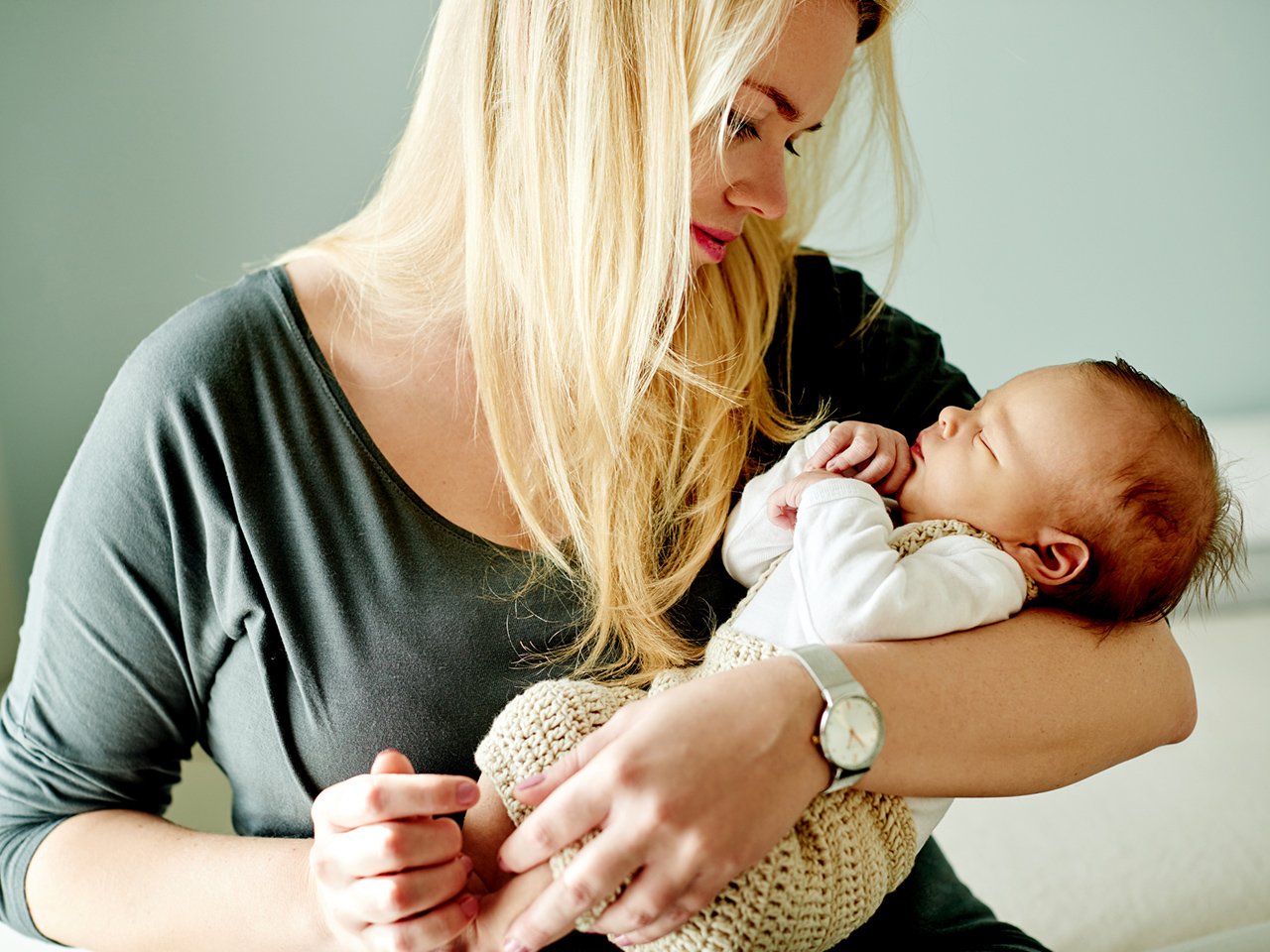Products You May Like
Everyone has an opinion on how to get your pre-baby body back—and now! It’s as if that’s all you can say to a mother who has just had a baby. It’s not.
When you’re pregnant, your body becomes public domain—people endlessly comment on your bump and reach out to touch your belly. And after you’ve had your baby, it doesn’t let up: Everyone has an opinion on how to get your pre-baby body back—and now! It’s as though that’s all there is to say to a mother who has just had a baby. It’s not.
There’s a cultural expectation that, after you have a baby, you must erase every trace of it on your body. We’re taught to hate our saggy breasts, protruding misshapen belly buttons, loose skin and stretch marks. But why must women eradicate motherhood from our bodies, as though it’s dirty or shameful?
That’s a question that comes up way too often in my work. For more than a decade now, I have had the privilege of helping women who face excruciating suffering with their bodies. I am a clinical eating disorder therapist, and founder of an eating disorder recovery centre in Toronto. When I speak with women in my practice, I hear about the overwhelming pressures they face to return to their former bodies post-pregnancy—pressures that provoke insecurities and make them feel disconnected from the experience of motherhood and their bodies. Those insecurities contribute to the harmful voices that tell them to restrict their food or exercise until they hurt themselves. And those who have been affected by eating disorders in the past find themselves vulnerable again.
During pregnancy, women develop curvy, womanly shapes that allow us to carry and nourish our growing babies. Our hips expand, our breasts swell with milk and our skin stretches. After pregnancy, many of these changes remain, but we quickly forget the important reasons for them. Stretch marks that streak the stomach should remind us of the growing home that accommodated a baby for almost an entire year. Breasts that fed and nourished flatten and sag—something we should see as a sign of the child’s nutritional and developmental independence. Arms fill out to provide the strength required to endlessly hold that growing child. The vagina, stretched and torn (or a C-section-scarred abdomen), allowed life to enter the world. But none of these features are celebrated. Unlike athletes whose scars are honoured, women are told to cover up signs of motherhood as though they are offensive.
We fight through unspeakable pain—earth-shattering pain—to give birth, and can face ongoing physical suffering for weeks or months after as we recover. We can experience postpartum depression, fear, indescribable exhaustion and anxiety as our hormones shift and change during and after pregnancy. It’s during these very dark days post-pregnancy that we are told to “get our bodies back now”—not focus on our babies, on motherhood, on our need to heal and rest and bond.
Women talk about the pressures they feel to diet immediately after giving birth, not realizing that cutting calories may compromise their ability to produce the milk required to feed their babies. Balanced nutrition and regulated intake are also critical for mental and emotional stability. Women tell me about the ways they are exercising to the point of exhaustion, or going to the gym well before their doctor said it was safe.
Our bodies need time to heal. So many of us pee when we jump or run (me included), or have diastasis (me included), which can challenge the ways we were once able to exercise. One client told me how she is exercising daily because she “cannot be in her post-pregnancy body any longer,” despite how sleep-deprived she feels and how much time it takes away from being with her baby. A girlfriend shared that she is having sex again just three and a half weeks post-pregnancy, despite her doctor’s recommendation she wait at least six to eight weeks, because she “wants to find something that reminds her of who she was.” I, like many women I know, went back to work sooner than I needed, juggling motherhood and a career. And we do it all to identify with being the women we once were, in the bodies we once had, doing the things we once did.
Yet nothing about us is really the same.
When babies are born, the world doesn’t just celebrate them, it oozes over them. Family members, friends, neighbours, colleagues, acquaintances and even strangers gush and love and hold and kiss and say sweet-nothings to them. People open their hearts wide, and wider still. We are in awe of babies. Shouldn’t moms have this same reception?
Perhaps if we spent more time celebrating the women, and the incredible bodies that led to motherhood, we would be less inclined to celebrate them vanishing. Perhaps we could love those bodies. Perhaps we could even call them beautiful—now and always.
Kyla Fox is the founder of the Kyla Fox Centre, an eating-disorder recovery centre in Toronto. She has been a clinical therapist in the field of eating disorders for over 10 years, and is also a public speaker, writer and advocate for eating disorder awareness and prevention. Kyla is most proudly the mother to her two daughters, Ryan Belle and Augusta Grey.
This article was originally published online in November 2017.
